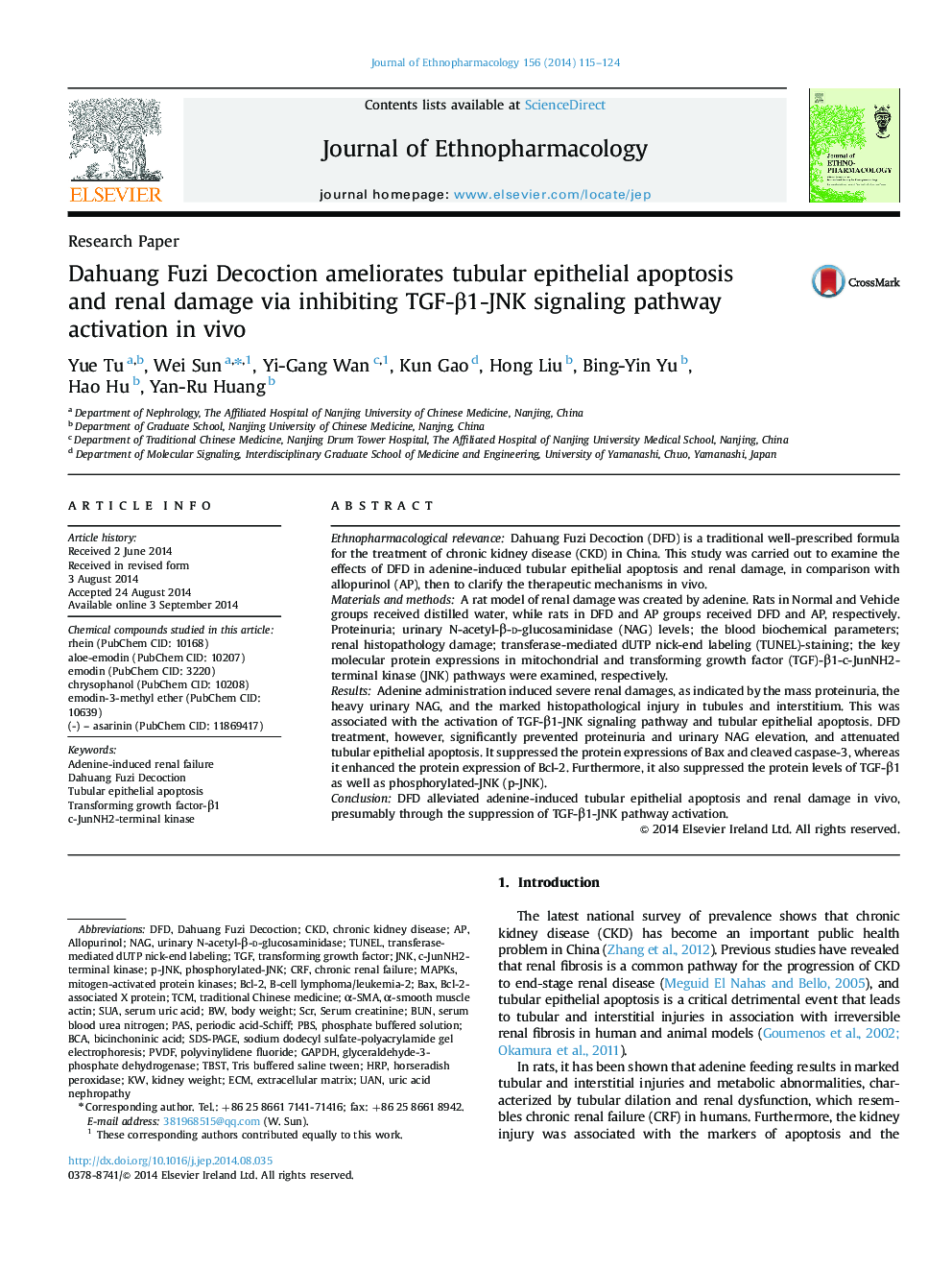| Article ID | Journal | Published Year | Pages | File Type |
|---|---|---|---|---|
| 2545248 | Journal of Ethnopharmacology | 2014 | 10 Pages |
Ethnopharmacological relevanceDahuang Fuzi Decoction (DFD) is a traditional well-prescribed formula for the treatment of chronic kidney disease (CKD) in China. This study was carried out to examine the effects of DFD in adenine-induced tubular epithelial apoptosis and renal damage, in comparison with allopurinol (AP), then to clarify the therapeutic mechanisms in vivo.Materials and methodsA rat model of renal damage was created by adenine. Rats in Normal and Vehicle groups received distilled water, while rats in DFD and AP groups received DFD and AP, respectively. Proteinuria; urinary N-acetyl-β-d-glucosaminidase (NAG) levels; the blood biochemical parameters; renal histopathology damage; transferase-mediated dUTP nick-end labeling (TUNEL)-staining; the key molecular protein expressions in mitochondrial and transforming growth factor (TGF)-β1-c-JunNH2-terminal kinase (JNK) pathways were examined, respectively.ResultsAdenine administration induced severe renal damages, as indicated by the mass proteinuria, the heavy urinary NAG, and the marked histopathological injury in tubules and interstitium. This was associated with the activation of TGF-β1-JNK signaling pathway and tubular epithelial apoptosis. DFD treatment, however, significantly prevented proteinuria and urinary NAG elevation, and attenuated tubular epithelial apoptosis. It suppressed the protein expressions of Bax and cleaved caspase-3, whereas it enhanced the protein expression of Bcl-2. Furthermore, it also suppressed the protein levels of TGF-β1 as well as phosphorylated-JNK (p-JNK).ConclusionDFD alleviated adenine-induced tubular epithelial apoptosis and renal damage in vivo, presumably through the suppression of TGF-β1-JNK pathway activation.
Graphical abstractFigure optionsDownload full-size imageDownload high-quality image (155 K)Download as PowerPoint slide
